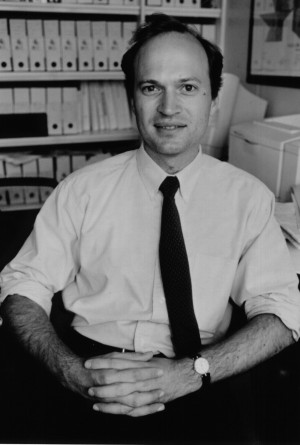 What does it mean to be a prolific writer? Well, by the book it means to “write in large quantities or with great frequency”. The prolific writers are the ones who’ve figured out all the secrets of the productivity game. And while there are a number of notable writers in this vein–say, Isaac Asimov with his 506 published works, or Alexandre Dumas who churned out hundreds back when paper was a luxury–there is one who has not just mastered the rules of writing productivity, but has broken them and rebuilt an entirely new set.
What does it mean to be a prolific writer? Well, by the book it means to “write in large quantities or with great frequency”. The prolific writers are the ones who’ve figured out all the secrets of the productivity game. And while there are a number of notable writers in this vein–say, Isaac Asimov with his 506 published works, or Alexandre Dumas who churned out hundreds back when paper was a luxury–there is one who has not just mastered the rules of writing productivity, but has broken them and rebuilt an entirely new set.
This is Philip M. Parker, who has written over 200,000 books. The average person reads 15 books per year–that means it would take that same person almost 7,000 years to read the titles Parker has published on Amazon alone, of which there are over 100,000.
So how does one man produce such an absurdly gargantuan body of work? While Parker has written six books by hand, he attributes the other 199,994 or so to a complex computer algorithm of his own devising. This algorithm pulls information from the internet and various databases, compiling it into a template. This allows books to be written as quickly as the computer can gather the information–and, unlike most writers, it doesn’t even need coffee to run.
Parker’s algorithm has mastered such genres as obscure dictionaries, cross-language crosswords, and highly niche reference materials (anyone want to borrow my copy of The 2007-2012 World Outlook for Food-Grade Dry Whole Milk Shipped in Bulk?). Many of these works seem useless to the majority of readers, but to the few they help, they can be essential references. Parker points out that some languages are so small that “there might not be people with the expertise in science or agronomy” to, for example, “write optimal planting strategies for maize in the local language.”
Parker also understands that not everyone who has the knowledge to write these books also has the confidence. “There are a lot of people, who want to be writers, who stumble at a blank page. You could imagine an algorithm that could give writers a first draft or a starter kit, so it could enable people to be more prolific in their writing.”
Of course, Parker’s books aren’t for everyone, and it’s possible that the music in good writing will never be recreated by machines. But that hasn’t stopped Parker’s computers from trying–he’s now slapped berets on their monitors and turned them into poets. And hey, I’ll admit that they aren’t bad. Just snap along to this colourful number:
A
happy family is but an earlier heaven
long time ago being crazy meant something
companion’s words of persuasion are effective
inside
- Lindsay Sealey’s Growing Strong Girls Gives Hope to Parents Under Pressure - September 7, 2017
- What I Learned About Confidence from Writing Growing Strong Girls: A Guest Post from Lindsay Sealey - September 7, 2017
- LifeTree’s Summer Reads - August 17, 2017